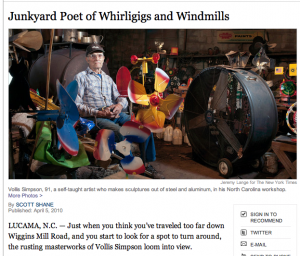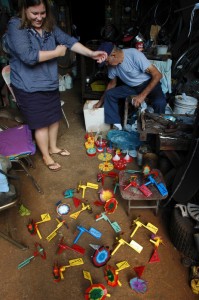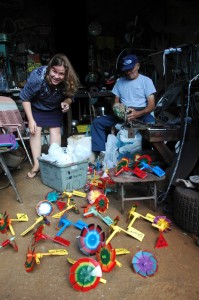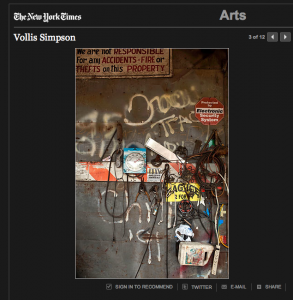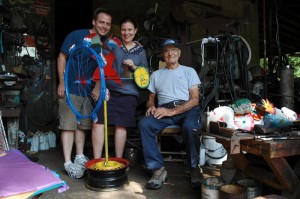Dissertation Accepted
With great pride I would like to announce that my dissertation was accepted by the Graduate School at UNC-Chapel Hill yesterday.
Congratulations. Your submission has cleared all of the necessary checks and will soon be delivered to UMI.
Hooray!
I’ve posted the entire dissertation online, with supporting materials created along the way.
It is published under Creative Commons with a BY-NC-SA 3.0 license.
Title: Contextual Authority Tagging: Expertise Location via Social Labeling
Author(s): Terrell RussellPublishing Settings & Copyright
Traditional Publishing
Do not delay release to ProQuest
Allow search engine access.
Do not allow third party sales.
Do not file for copyright – I am requesting that ProQuest/UMI not file for copyright on my behalf.Degree/Department Information
Year degree awarded: 2011
Degree Awarded: Doctor of Philosophy
Year Manuscript Completed: 2011
Department: Information & Library Science
Advisor/Chair: Deborah Barreau, Gary Marchionini
Committee Members: Barbara M Wildemuth, Sri Kalyanaraman, Phillip J WindleySubject Categories
Information Science [0723] – primary
Organization Theory [0635]
Social Psychology [0451]Keywords
cognitive authority
expertise
identity
knowledge management
reputation
taggingAbstract
This study investigates the possibility of a group of people making explicit their tacit knowledge about one another’s areas of expertise. Through a design consisting of a modified Delphi Study, group members are asked to label both their own and each others’ areas of expertise over the course of five rounds. Statistical analysis and qualitative evaluation of 10 participating organizations suggest they were successful and that, with simple keywords, group members can convey the salient areas of expertise of their colleagues to a degree that is deemed “similar” and of “high quality” by both third parties and those being evaluated. More work needs to be done to make this information directly actionable, but the foundational aspects have been identified.In a world with a democratization of voices from all around and increasing demands on our time and attention, this study suggests that simple, aggregated third-party expertise evaluations can augment our ongoing struggle for quality information source selection. These evaluations can serve as loose credentials when more expensive or heavyweight reputation cues may not be viable.
Language
en ( English )
Tags: dissertation - phd
